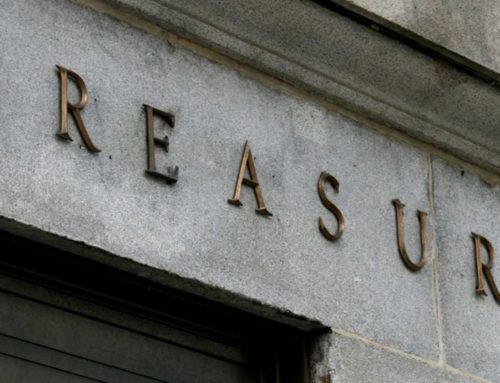Taxpayers for Common Sense supports The Healthy Fields and Farm Economies Act, bipartisan legislation introduced by Congressman John Faso and Congresswoman Marcia Fudge.
The following is a joint statement on the legislation from the sponsors’ offices:
Washington, D.C., January 10. 2018 – Congressman John J. Faso (R-Kinderhook) and Congresswoman Marcia L. Fudge (D-OH) today introduced bipartisan legislation to improve conservation programs for farmers and increase accountability to American taxpayers.
The Healthy Fields and Farm Economies Act would give USDA the tools and authority to measure, evaluate, and report on federal conservation program outcomes so that they better serve family farmers, protect natural resources, and provide a greater return on investment for taxpayers.
Each year USDA invests billions of dollars in conservation through myriad farm bill programs, including: the Environmental Quality Incentives Program (EQIP), the Conservation Stewardship Program (CSP), the Agricultural Conservation Easement Program (ACEP), and the Conservation Reserve Program (CRP). These programs help farmers to ensure that their working lands are healthy and sustainable for generations to come, protect at-risk and marginal lands across the country from degradation, and invest in our shared natural resources.
“Voluntary conservation efforts being implemented through the USDA are helping farmers make investments in conservation initiatives that protect natural resources and increase farm productivity,” said Congressman Faso. “This legislation would ensure that USDA will continue to improve existing conservation programs and practices, while also supporting the hard-working farmers and ranchers who invest in protecting our shared natural resources.”
“The next farm bill presents a critical opportunity to invest in farmer-led conservation efforts to protect our shared natural resources,” said Congresswoman Fudge. “Ohio faces severe water quality and natural resource challenges, and USDA conservation programs play a key role in supporting farmers in addressing these issues. This legislation will allow USDA to accurately measure the environmental benefits of our nation’s conservation programs – providing the necessary information to defend and enhance the conservation toolbox.”
The Healthy Fields and Farms Economy Act would:
- Authorize the Conservation Effects Assessment Project (CEAP) and expand USDA’s ability to assess natural resource concerns through enhanced measurement, evaluation, and reporting on conservation program outcomes.
- Quantify the environmental benefits of conservation practices in order to better build upon and improve program and practice performance going forward
- Direct USDA to use up to 1 percent of funding available for new enrollments of farm bill conservation programs to support the measurement and evaluation process
- Require USDA to report on program progress to Congress and to the public, provided that individual data is aggregated to protect personally identifiable information
- Establish a National Technical Committee composed of individuals with relevant technical and scientific expertise to assist NRCS in monitoring and evaluating conservation programs
- Authorize USDA to implement cooperative agreements with qualifying federal, state, and local agencies, universities and colleges, and NGOs to support implementation
Leading conservation advocates are also expressing strong support for the Healthy Fields and Farm Economies Act:
Taxpayers for Common Sense:
“Taxpayers for Common Sense applauds Congressman John L. Faso (R-NY) and Congresswoman Marcia L. Fudge (D-OH) for introducing The Healthy Fields and Farm Economies Act. This bill will enable the USDA to better measure, evaluate, and communicate the progress of voluntary conservation programs in achieving their stated goals. With a nearly $20 trillion national debt and annual deficits on the rise, it is critical that every tax dollar provide a significant return on investment. This legislation will empower farmers, ranchers, and taxpayers with the data needed to show voluntary conservation programs are a cost-effective means of achieving important resource goals.”National Sustainable Agriculture Coalition:
“Farmers need programs and practices that they can rely on, particularly when it comes to conservation,” said Alyssa Charney, Policy Specialist at the National Sustainable Agriculture Coalition. “The Healthy Fields and Farm Economies Act will ensure that American family farmers are getting the absolute best conservation programs and practice recommendations from USDA by closely tracking and evaluating program performance over time. By implementing this kind of basic measurement and reporting, Congress can also make federal conservation programs more accountable to American taxpayers, and USDA will be able to use hard data to show just how successful conservation efforts have been”American Farmland Trust:
“We are thrilled that this bill will enable NRCS to quantify the environmental and economic outcomes being achieved by farmers and ranchers participating in the agency’s conservation programs and initiatives,” says John Larson, Senior Vice President for Policy and Programs with American Farmland Trust. “Farmers, the conservation community, and the general public want to know what environmental successes NRCS programs are achieving at both the field- and landscape-scale, and this bill would strengthen the agency’s ability to measure and tell those success stories,” he continues.“The bill also helps conservation groups identify the methods and tools they could use to monitor or model the conservation outcomes of their watershed water quality projects,” Larson says. “Many groups want to go beyond reporting administrative outcomes, such as acres of practices adopted, to also report on actual or estimated water quality improvements achieved.”
National Wildlife Foundation:
“The National Wildlife Federation thanks Representatives Faso (R-NY) and Fudge (D-OH) for their leadership on this important issue,” said Aviva Glaser, senior policy specialist at the National Wildlife Federation. “The Healthy Fields and Farm Economics Act would finally give USDA the tools it needs to measure the impacts on soil, water and wildlife of taxpayer investments in Farm Bill conservation programs and help target improvements to ensure even greater benefits in the future.”










